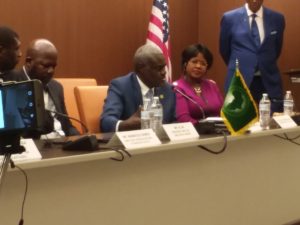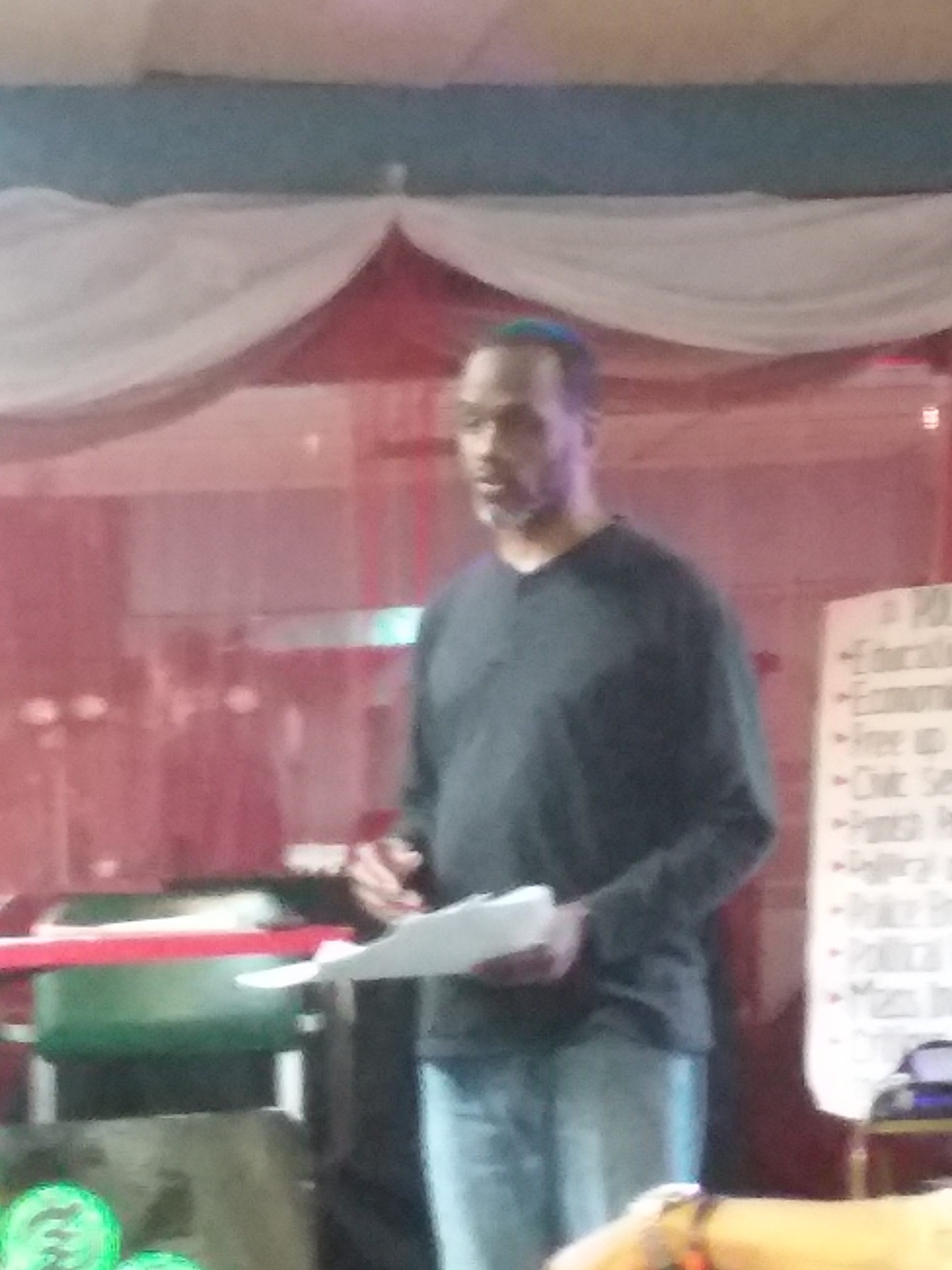 This is a continuation of the report on the Saturday, April 14 Pan-African Town Hall Meeting of 2018, which was held at the historic Arch Social Club, located in the Penn-North neighborhood of West Baltimore. The Town Hall Meetings have been held since 2007 by the Sixth Region Diaspora Caucus to bring the grassroots Afrikan-Descendant community in Maryland together, hear their concerns, share SRDC’s plan for establishing the Diaspora’s voice in the international arena, and establish a representative delegation from the state of Maryland that would include State Representatives, Observers and a Council of Elders. In the year 2017, SRDC held five Pan-Afrikan Town Hall Meetings between June 24 and December 2, when a Maryland Council of Elders (MCOE) was nominated and confirmed. In 2018, there have been two Town Hall Meetings held, the April 14 session being the most recent as of this writing.
This is a continuation of the report on the Saturday, April 14 Pan-African Town Hall Meeting of 2018, which was held at the historic Arch Social Club, located in the Penn-North neighborhood of West Baltimore. The Town Hall Meetings have been held since 2007 by the Sixth Region Diaspora Caucus to bring the grassroots Afrikan-Descendant community in Maryland together, hear their concerns, share SRDC’s plan for establishing the Diaspora’s voice in the international arena, and establish a representative delegation from the state of Maryland that would include State Representatives, Observers and a Council of Elders. In the year 2017, SRDC held five Pan-Afrikan Town Hall Meetings between June 24 and December 2, when a Maryland Council of Elders (MCOE) was nominated and confirmed. In 2018, there have been two Town Hall Meetings held, the April 14 session being the most recent as of this writing.
The April 14 meeting invited several speakers to make presentations. The part of the meeting that seemed to draw the most attention and concern was the discussion of the Maryland Legislature’s attempt to pass a relatively draconian Comprehensive Crime Bill and the community’s response. Bro. Thomas Ruffin’s discussion immediately followed that of Bro. Dayvon Love of Leaders of a Beautiful Struggle, and while Bro. Dayvon’s talk concentrated on the effort to defeat Senate Bill 122, the Maryland Comprehensive Crime Bill, and their continued challenges to Senate Bill 101, the “watered-down” version that took its place and was passed in the Maryland Legislature, Bro. Thomas was more critical of the community’s relatively disorganized response to that and other efforts by the Maryland Legislature that run counter to the interests of the Pan-Afrikan Community.
Bro. Thomas Ruffin
“I’m one of the members of the board of directors of the International Association of Black Lawyers, and I’m the legal counsel for a small group that’s called the Maryland Coalition for Justice and Progressive Change. One of your friends and colleagues, Rev. Annie Chambers, is the Chairperson for the Maryland Coalition for Justice and Progressive Change, over in East Baltimore. And I certainly appreciate the gathering of the Pan Afrikan Town Hall Meeting … and also the work of the Leaders of a Beautiful Struggle, and what Dayvon had to say.
“And one thing I want to disagree with Dayvon is, while he was putting a wonderful analysis over the struggle against the Maryland Comprehensive Crime Bill and the effort that changed it from Senate Bill 122 to a watered down version, what I believe to be Senate Bill 101, I want to say that we failed. I truly want to say that we failed. And I don’t want to talk about it as though we can live with the failure.
The “Browning of America” May Not Be As Rosy As We Think
“What I want us to think about is this: In about 28 to 37 years, the majority of the people in this country will be non-White people. In other words, White people, of European descent, will then be a minority compared to all the other races gathered together in this society. However, the genocide that’s being worked on us right now is such that, when we acquire the majority in terms of numbers in the population, we still won’t be in control of this society. White capitalist supremacy will be running it, and they mean to keep running it.
“Let me add on to that. If we think smartly about how we’re going to address that, and over the next 28 to 37 years we figure out how we’re going to oust White capitalist supremacy from being in power in this society, quite frankly, the way we’ve been so horribly oppressed and miseducated, we wouldn’t know how to run this society or its governance. I’m just being frank.
“Now, let me add on to that. If, in the next 28 to 37 years, we figured out all of that, that is, how to get rid of these devils, how to run the society, the economy, the health care system, how to provide for our well-being, how to provide for our uplift, these White capitalist supremacists wouldn’t stay here and be under our rulership. They will leave and go elsewhere.
“And so, then we have this other problem. Right now, the federal government — I’m not talking about the state government and municipal government, but the federal government in this society — has a debt of $21 trillion. In about 28 to 37 years, that debt could be double. It could be more than that. So, I’m actually estimating that it would be probably about $40 trillion, making a conservative estimate. So let’s say we oust them. We take control. We know how to manage the society, that is, how to govern. We know how to do it where they have failed us, or actually deliberately succeeded in oppressing us. We can turn that around. We would still be in trouble with this enormous debt that that they or some other society in the world would demand be repaid because they would be the holders of the debt. They would be the creditors.
“In other words, we would still be under their yoke, and — we were talking about South Africa. The society in South Africa, when they overthrew apartheid White supremacy, two things changed in that process. Just before that took place, the White people dismantled their nuclear weapons. In other words, they anticipated our taking control. So they did not want us to have nuclear weapons. And there’s a lot of different ways that can be interpreted but I’m just going to keep it to that one, because all this stuff they said that they thought that a new society ought to be cleansed of the evil of nuclear weapons didn’t apply to them when they were running the society, so I’m just saying they made sure we wouldn’t have nuclear weapons.
“Number two, the debt that they amassed in oppressing us stayed in place when we took over. That’s going to be our circumstance unless we figure out how to deal with it.
“Now, how can we deal with that, how can we figure it out, when they deliberately underfund our four historically Black universities in this state, and we argue about ‘well, why in the world are we freeing Black men who are thugs in prison?’, while they keep us divided so those men, who ain’t Black politically speaking, they get locked up, and then we get divided in our society between different groups that are struggling with each other, in competition for wealth and power, while they [White capitalist supremacists] maintain [the] wealth and power?
Twisting Fighting Crime into a Policy of Genocide
“So what I’m trying to say is … what we’re dealing with here, we’ve rhetorically described many times as genocide. But the truth is, that’s exactly what it is. In this state, there are about six million people. Twenty-nine percent of those people in this state are Black people of Afrikan descent. But we make up 71% of people in Maryland state prisons. See, that doesn’t make any sense. And when they talk about being tough in crime and tough on gun violence, let me add on to this.
“First of all, the greatest threat by way of killing in this society, when you take out warfare and you take out abortion … is suicide. It’s not ‘Black-on-Black crime’. It’s not even murder. As a matter of fact, when you break down suicide, the greatest threat in this society by way of killing is White male suicide. More White men each year killed themselves than all the homicides in the society put together. Yet, they come together smartly in oppressing us to aim us at fighting crime, which means fighting us, but they don’t address this White male suicide problem.” [Editor’s note: We looked up the official death statistics in the United States, and sure enough, the number of suicides is three times the number of murders in the United States every year.]
“As a matter of fact, just think about it. … If Dayvon was the Speaker of the House, and I was the President of the Senate, and the Governor started talking to us, I’d say ‘You know what we’re going to do? What we’re going to do is, we’re going to have a prophylactic, so whenever a man loses his wife to divorce, or loses his children in a child custody battle, or whenever he is about to lose all of his wealth through a financial collapse or the loss of his business, that man … is going to be put in a mental health facility for two months for observation. That’s going to be a prophylactic against suicide. Because we have a horrible problem in this state with male suicide. And by and large, most of the people who will be locked up … will be White men. See, we don’t talk like that, but they do. They literally do.
“In that Senate Bill 122, [we say], ‘should we really fight against something like that? That’s fighting crime, and crime is right here on the street.’ Everybody’s seen it; people nodding on that heroin. If we came in here and parked our cars, we’re hoping our cars are still intact. We can go all through that. And, like I said, they are not, politically speaking, Black. But Governor Hogan ain’t Black. … Tom Miller ain’t Black. … These people never will prescribe an answer for our problems. This lady [in the audience] rhetorically said, we have to answer our problems ourselves. I’m saying for real, we literally have to answer our problems ourselves or these problems will beset us until the end of time. And that’s what’s prescribed for us, for us to suffer like this until the end of time.
“We Forgive Everybody”
“So let me go on, because I just want to be clear. When Dayvon said that the Leaders of a Beautiful Struggle were observing what the Maryland General Assembly might do before the General Session started, and then they saw all these Crime Bills and saw them flip up, where were the two members we know to be Black in the Senate Judicial Proceedings Committee? One was running for County Executive in Prince Georges County, and the other I believe is running for State Attorney General. Victor Ramirez — well, I call him Black — he’s running for State Attorney General. Anthony Muse is running for County Executive. And when they are running for a high ranking position in the police state, they’re not serving us. But even if they are … they should have been mobilizing, at the least, the Black and Hispanic Caucus against this. See, that’s where we fail. The Leaders of a Beautiful Struggle are in there fighting against this. They should have had more and we should have been there. … They should have brought us in, and we should have been chasing them down to be there. We ignore Annapolis every single year, and it’s only three months. We ignore it like it’s way away. I’ve seen people in Baltimore march at Town Hall over a problem that’s only resolved in Annapolis. And it doesn’t make sense. I’ve seen us get flipped by these fakes who are in the Black Caucus, whether it’s local or statewide — same thing happens nationally — and we keep getting flipped. And we act like that’s not the problem. No. It’s a serious problem. So, let me just take us to what I’ve passed out.”
Bro. Thomas now referred to a listing of the votes in the House of Delegates and the Maryland Senate on Senate Bill 101, which was the parts of the original Comprehensive Crime Bill (Senate Bill 122) that were repackaged and finally passed in the Maryland Legislature.
“If you look at it, the first page is the vote on Senate Bill 101. If I’m not mistaken, Senate Bill 122, the Comprehensive Crime Bill, ultimately became Senate Bill 101. That was a watered down version of what Dayvon was talking about earlier. And what Dayvon talked about earlier, he didn’t even touch on it. This thing is so dastardly, this is what they wanted to do. … They wanted to outlaw drug treatment for those who are locked up for a violent crime. Now, I want to get this straight. I beat you because I’m a heroin addict. I’m a fool on heroin. I’ve skipped ever being Black. I beat you. You survive. … I’ve got five years. For that whole five years, I’m in prison, and I don’t get drug treatment. I don’t even get diagnosed to see if I have a drug problem. And I’m walking in, asking for heroin. I’m looking for fentanyl. I’m begging for Vicodin. And you’re beat in bed. And they don’t address, what you say, the root cause of the problem. No, no, no, they ain’t doing that! … That piece of shit [bill] was just what it was, a piece of shit, and we got divided over their piece of shit, rather than planning for what we ought to put through the Legislature. And if the poor folk [in the House and the Senate] won’t put it through, we get them another job [by voting them out]. See, we don’t operate on that. We forgive everybody. Anthony Muse, Victor Ramirez, Catherine Pugh. We forgive everybody, and they mean evil to us.
“I’m going to be real clear. The Lieutenant Governor, we grew up together. We went to John Carroll High School together. He’s a wonderful Brother. Boyd Rutherford is a wonderful Brother. Now, I’ve said that. He and my brother were close friends, and by that and by our relationship, we became close friends. But — I’m not talking about him being a Republican, I’m not talking about him being Lieutenant Governor — I’m saying when he does not oppose the genocide directed against us, he’s no longer politically Black. Why do we forgive everybody? And they mean evil and genocide to us. That doesn’t make sense.
“How can we lift ourselves up when Coppin State is an inferior third-class university? Not because the talent’s not there, because it’s not funded. They put all the money — that’s supposed to go to Coppin State, Morgan State, Maryland Eastern Shore and Bowie State University — in College Park. And to University of Maryland Baltimore County. I mean, that school actually had a competitive basketball team. Towson University. University of Baltimore. How in the world have they got all the money, it’s always with White people, and we’re still loving White people so much we’re trying to give our money to them? And that’s what we do. We give our money to them.
Bro. Thomas distributed a listing of the recent votes in the Senate and the House of Delegates on Senate Bill 101, the watered-down version of the original Maryland Comprehensive Crime Bill, SB 122. “These are the people who voted against us, the ones who voted ‘Yea’ for the Crime Bill. This is the House of Delegates. Now, [Dayvon] was right. The Black Caucus in the House of Delegates basically turned [against the Crime Bill]. Why? Because they were on the job. Why? Because the Maryland Coalition for Justice and Progressive Change was on the job. Why? Because the Prince Georges County NAACP was on the job. If the whole Black Nation was on the job the [watered-down Crime Bill] wouldn’t have passed. … It wouldn’t have passed if we were about our work, but we’re not about our work. And that’s a horrible problem. So, let me lay out, basically, how I suggest we get about our work. I’m going to use Baltimore as the framework.”
Beginning to Take Control of the Local Politics in Our Community
“There are six legislative districts in Baltimore. Each legislative district should have a team, under the leadership of whatever it is. It could be this, our ‘Pan-Afrikan Medallion’ [pointing at the Spokes of the Wheel diagram], our Council of Elders, but it’s got to be competent. Each district should have at least 20 to 30 people, but it should have a few hundred. And what they do is watch Annapolis.
“House of Delegates, District 41. Angela Gibson, Samuel Rosenberg and Bilal Ali. There should be a team of people who do nothing but watch them and the Senator from that district. And before January starts, we should be imparting to them, in writing, what our legislative agenda is. And make it clear that they do not depart from that agenda. We can’t do that without unity. So when we talk about unity, there’s a meaning for unity and when we don’t have the meaning behind that unity, sometimes we fail. Sometimes we have the meaning, and then you run up to [someone like me who says], ‘I’m trying to make money as a lawyer. I don’t have time for that.’ … Okay, when we run up against that kind of handkerchief-head we’ve got a problem. And if I don’t understand that the wellbeing of the Black Nation provides for my prosperity — similarly, if the Black Nation doesn’t realize that if I’m working hard, like Dayvon and the Leaders of a Beautiful Struggle are working, and the Black Nation doesn’t patronize me — when we’ve got that kind of backwardness, we’re failing ourselves.
“So, let’s look at District 41. Samuel Rosenberg; he doesn’t serve us, and I’m not saying that because he’s White. … We need to target Rosenberg to get another job. Similarly, Nathaniel Oaks in the Senate. He did resign [after being indicted on nine counts of federal fraud and bribery], good enough. … We need to think on what Black man, or what Black woman [we can promote for public office] who is well-educated, dedicated to our wellbeing to the utmost, who can serve excellently in the Senate and follow our agenda. Jill Carter is a candidate. … Jill is extraordinary, but is she the one? There are thousands of people out here, and we’re going to start with her and just stop with her? No. Say if I … want to run, [but] you all never scrutinized me or came to me and said ‘Thomas, we want you to run’, you all hadn’t come to that and I just sought that for my [interests], you don’t know whether I’m doing that for my career uplift or whether I’m doing it for the wellbeing of the Black Nation. … So, Rosenberg needs another job, and we need to scrutinize Bilal Ali and Angela Gibson. … [District] 44A, we look at the same thing. Did Keith Haynes [or Curt Anderson] do enough for us? So, if he is a handkerchief-head, we get him another job. And that takes planning.
“There are six districts. Each district should have at least 30 working in unity. Not one group from one organization. All the organizations come in. That means you may even get the conservative-minded Black folks. But they’ve got to be dedicated absolutely for our uplift. They have to be radically for our uplift. They can be conservative, but radically for our uplift. … Also, we’ve got to have people who are going to study. I mean, study the legislature and the legislative process. …”
Campaign Contributions: Legalized Bribery
“[Baltimore City and Prince George’s County] are the two counties where we have a substantial majority. I mean, a kick-butt majority. But we don’t run either Baltimore City or Prince George’s County, not now, not ever, and we don’t run the agenda for the people who represent Baltimore City or Prince George’s County, not now and not ever. We have to change that. And that takes a long-term plan.
“[Senator Robert Zirkin, sponsor of the Maryland Comprehensive Crime Bill] received donations from 2,446 people, from about $50 to about $6,000. We don’t do that. Let me get this clear. If we don’t engage in ‘legalized bribery’ of these people, we lose. Bobby Zirkin was not flipping because that White Jewish community and the rest of White capitalist supremacy in that county were well behind just what Dayvon was saying — a program to exploit us for their satisfaction and wellbeing. We offer no defense, and we will never offer a defense, if we’re not engaged. … Don’t do it illegally. Understand that a campaign contribution is a bribe. You never use that word when you’re talking to a public official; then it becomes illegal. You never say, ‘I’m giving you this so you’ve got to do this.’ You never do that. What you do is you go to their meetings. We have to go to all these Delegates and Senators and tell them what our agenda is. We take one person from each of our districts and say ‘This is what we’re doing.’ … And we don ‘t go with 18 people. We go with two or three. And we rotate around. And we do the work. If you do the work, it begins to show.”
Unified Power
“And when the handkerchief-head doctors, lawyers, preachers, congregations and other business folk follow along, and when the community, that part that is not so dysfunctional that it cannot operate for its wellbeing, follows along, we begin to amass unified power that can rock and roll in Annapolis, when it’s only three months and one week. We do not work that three months and one week. White capitalist supremacy does. Because we don’t do that, we lose.”
Bro. Thomas reiterated his admonition that “you don’t trust people who have betrayed you before” in charging that most of our Black elected officials have, in effect, been White elected officials due to their failure to implement a Black Community-based agenda. “We have to do that in Baltimore here with the Mayor and the City Council. … When the Mayor is talking about giving beaucoup crazy money to Amazon, and nothing to us, we need to tell [her] we’ve got a problem. … We’ve got the same problem in DC. … These people have sold us out so mightily that we are sinking in our own failure. That stops when we unify smartly. Not just unify. … That stops when we’re not just smart but we unify, and that stops when the unity and being smart is on a smart program and agenda.”

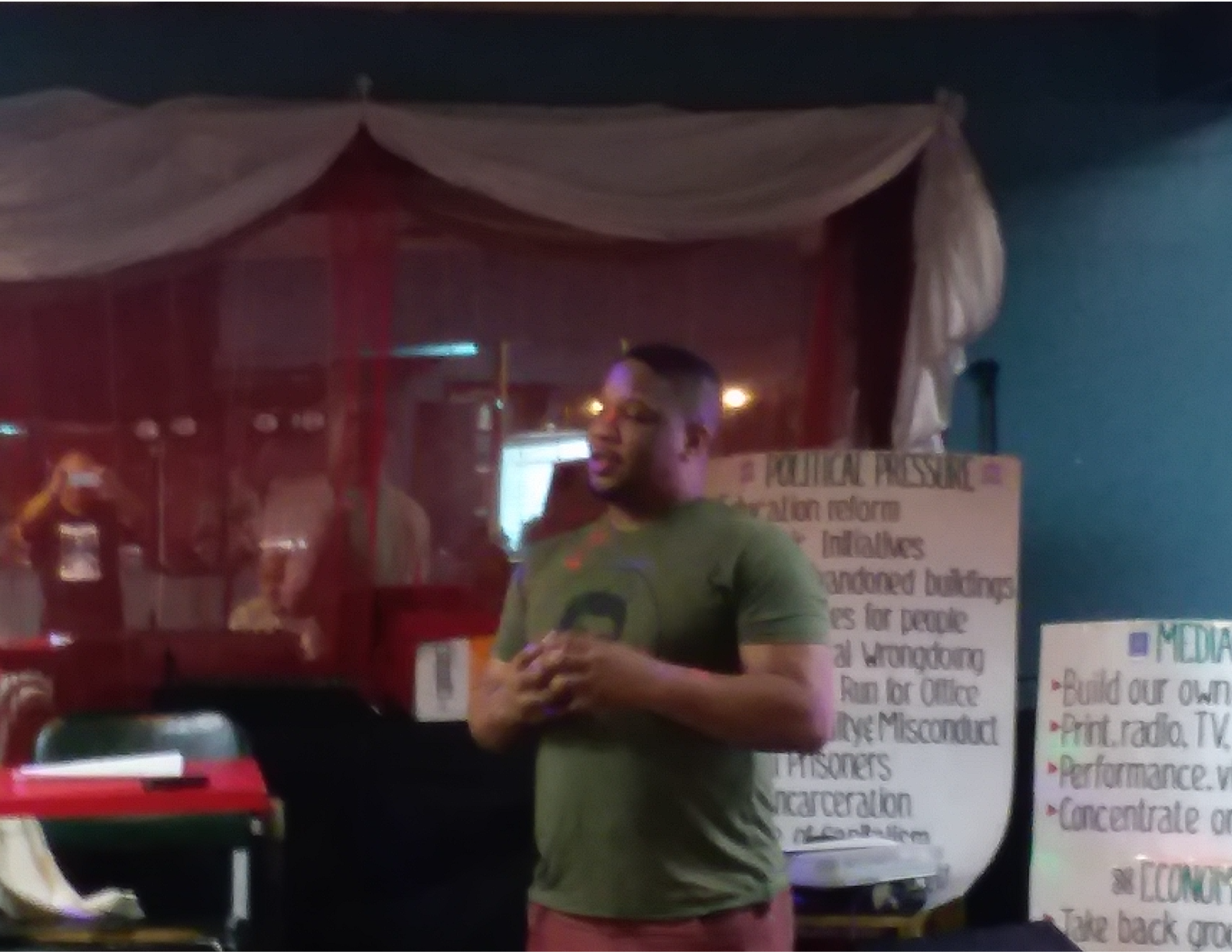 “We are a grassroots think tank that explicitly advocates for the interests of Black people in the political arena.
“We are a grassroots think tank that explicitly advocates for the interests of Black people in the political arena.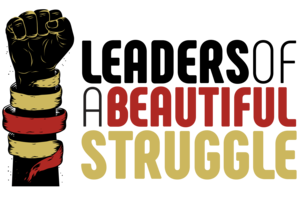
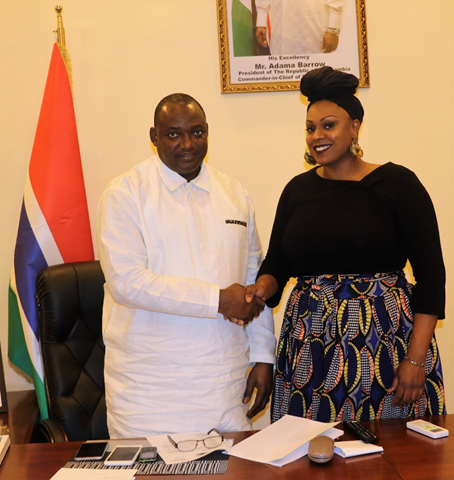
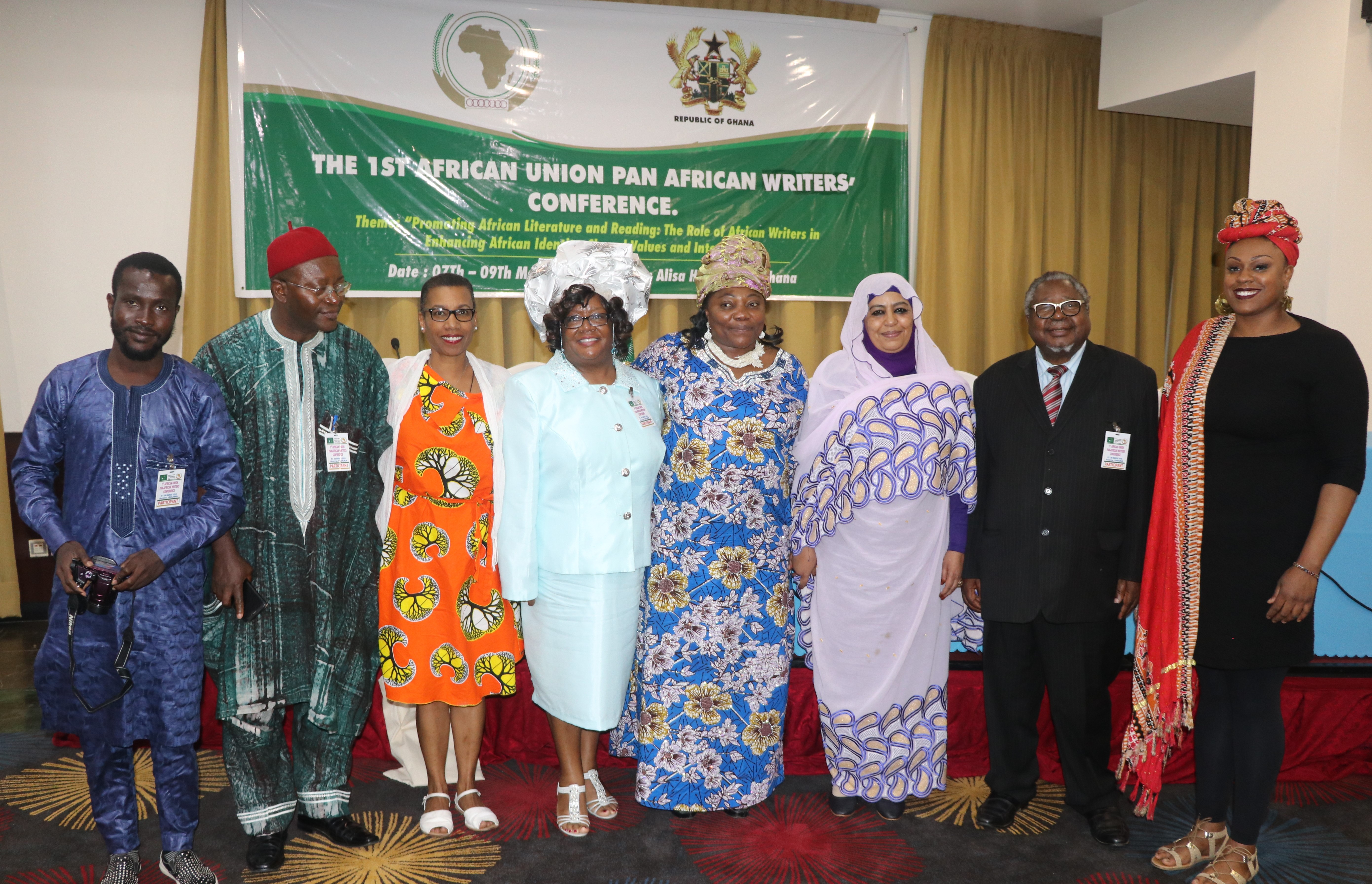
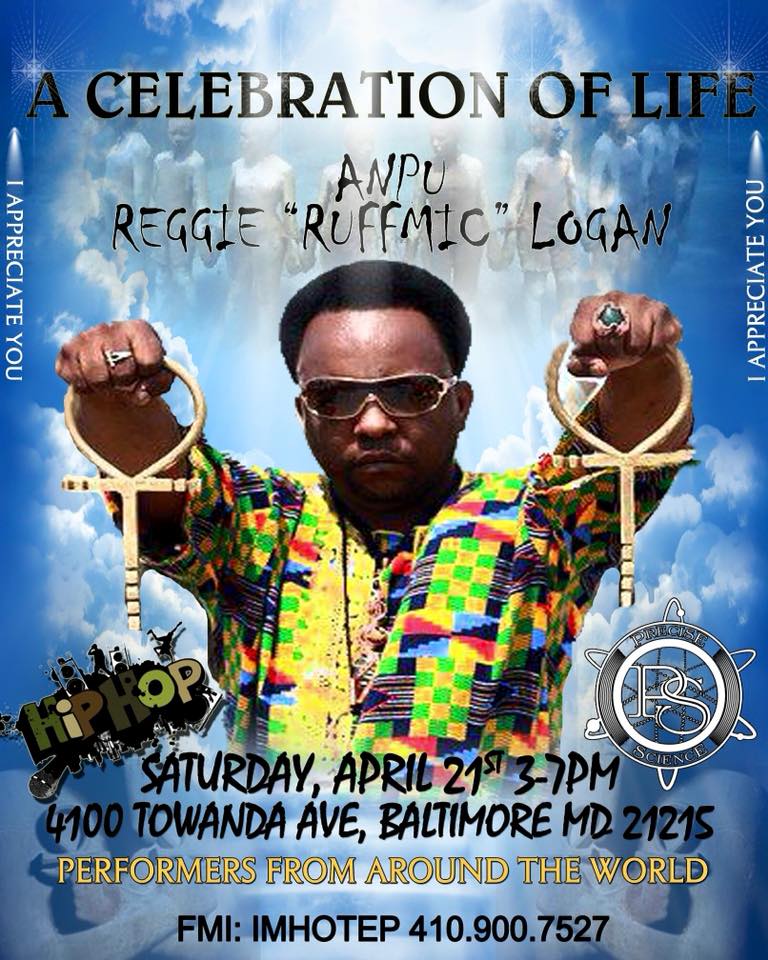 I have not known what to say ever since learning of the transition to the Ancestors of Bro. Reggie “Ruffmic” Logan, otherwise known as Bro. Anpu Ptah Amen, on March 7. From Precise Science’s breakout CD, “Everybody’s Not Gonna Make It”, to the various “Mixtape” CD releases and Ruffmic’s solo effort “Who Me?”, many of us in the Pan-Afrikan activist community had come to look for inspiration from Ruffmic and Bro. Heru “Freedomwriter” Ptah MeriTef. The duo, often accompanied by Bro. “Flo” and DJ WaH-Heed on the Wheels, had traveled across the country to perform for adoring crowds and to spread their knowledge and uplifting pro-Afrikan message. Precise Science had also performed regularly at the annual Pan Afrikan Day of Solidarity, hosted by the Pan-Afrikan Liberation Movement (PLM) in Baltimore, and featured in their shows a variety of talented vocalists, lyricists and musicians to deliver uplifting and self-affirming messages and knowledge to the people, as well as promotion of the Guerilla Republik apparel and philosophy which were woven into their performances.
I have not known what to say ever since learning of the transition to the Ancestors of Bro. Reggie “Ruffmic” Logan, otherwise known as Bro. Anpu Ptah Amen, on March 7. From Precise Science’s breakout CD, “Everybody’s Not Gonna Make It”, to the various “Mixtape” CD releases and Ruffmic’s solo effort “Who Me?”, many of us in the Pan-Afrikan activist community had come to look for inspiration from Ruffmic and Bro. Heru “Freedomwriter” Ptah MeriTef. The duo, often accompanied by Bro. “Flo” and DJ WaH-Heed on the Wheels, had traveled across the country to perform for adoring crowds and to spread their knowledge and uplifting pro-Afrikan message. Precise Science had also performed regularly at the annual Pan Afrikan Day of Solidarity, hosted by the Pan-Afrikan Liberation Movement (PLM) in Baltimore, and featured in their shows a variety of talented vocalists, lyricists and musicians to deliver uplifting and self-affirming messages and knowledge to the people, as well as promotion of the Guerilla Republik apparel and philosophy which were woven into their performances. 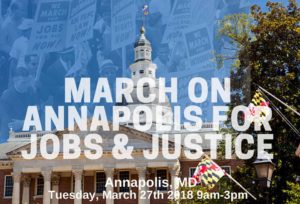 The following is an urgent call for the community to become involved in an imminent Maryland legislative effort which, according to several activists in the Pan-Afrikan Community I have spoken to, must be stopped.
The following is an urgent call for the community to become involved in an imminent Maryland legislative effort which, according to several activists in the Pan-Afrikan Community I have spoken to, must be stopped.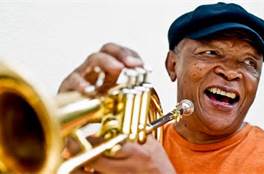
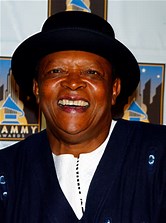

 The African Union Mission in Georgetown, Northwest Washington, DC, was the location for a special event, the meeting of the Chair
The African Union Mission in Georgetown, Northwest Washington, DC, was the location for a special event, the meeting of the Chair 